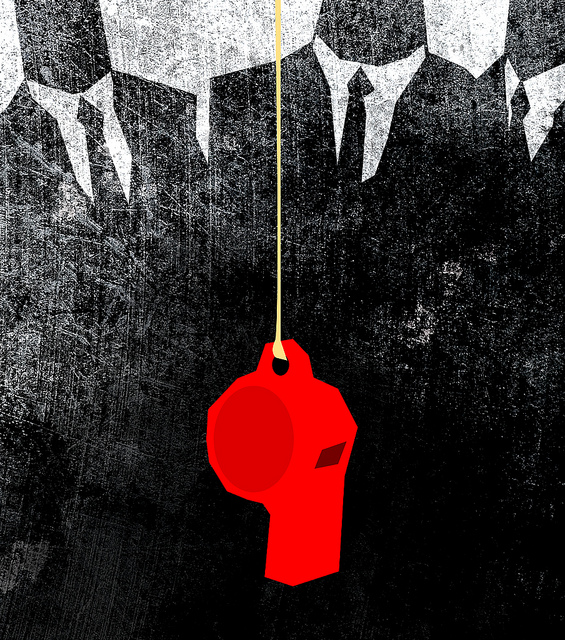 Fiscal year 2012 was a record year for whistleblowers. According to the Taxpayers Against Fraud Educational Fund, the U.S. government recovered more than $9 billion through lawsuits invoking the False Claims Act, legislation that gives private citizens the right to sue those that commit fraud against government programs (and share in any fines that are eventually collected).
Fiscal year 2012 was a record year for whistleblowers. According to the Taxpayers Against Fraud Educational Fund, the U.S. government recovered more than $9 billion through lawsuits invoking the False Claims Act, legislation that gives private citizens the right to sue those that commit fraud against government programs (and share in any fines that are eventually collected).
A case against GlaxoSmithKline resulted in a record $3 billion in fines for illegal marketing and other misdeeds, Abbott Laboratories paid $1.5 billion for off-label marketing of drugs and Bank of America was hit with $1 billion in fines for mortgage and bank fraud. These were just the top three False Claims Act settlements of FY 2012, and the thing they had in common is that they were initiated by whistleblowers.
In theory, whistleblowing — calling out clearly unethical and/or illegal conduct — might seem like a no-brainer. When we witness bad behavior, most of us feel compelled to do something. Or at least, think about doing something.
But in real-life, calling out someone’s bad deeds is incredibly difficult, even if that person is a total scumbag. When you point the finger, there’s an implicit assumption that you’re better than the scumbag, and most of us don’t want to put ourselves in that position. After all, who among us is above reproach? (Not me.)
I’ve never been a whistleblower, but as a journalist, I’ve called liars out on their fabrications, and it never feels good.
When I was reporting a Bicycling story about Tyler Hamilton, back when he was insisting that he’d never doped, Hamilton’s people gave me the names of lots of people who, it turned out, no longer believed him. Several people who had their names and pictures on the Tyler Hamilton Foundation website told me privately that they no longer believed Tyler, but they didn’t want to confront him. That’s right — they didn’t want to hurt the feelings of a guy who had lied to their faces and was using them to spread his lies. (Don’t bother looking — the THF no longer exists. The website now points to his commercial coaching service, offering a “potent cocktail” of training and links to his new tell-all book.)
I understand the hesitation of these former believers. When you point the finger, you throw yourself into the role of accuser, and accusers are easily and routinely demonized, especially when they are pulling back the curtain on problems that people do not want to see.
Whistleblowing can take a physical toll. A 2010 New England Journal of Medicine study of fraud litigation against the pharmaceutical industry found that whistleblowers routinely experienced “stress-related health problems, including shingles, psoriasis, autoimmune disorders, panic attacks, asthma, insomnia, temporomandibular joint disorder, migraine headaches, and generalized anxiety.” They also reported divorces, severe marital strain and family conflicts during their involvement in the cases.
People who expose fraud are often ostracized and harassed and may find themselves fired or blacklisted.
So why do they do it? Probably not for the money. The New York Times reports that the Justice Department pursues only about 20 percent of the False Claims Act lawsuits initiated. When whistleblowers are awarded a share of the fines, the money comes only after long, often hard-fought legal battles that can take years to settle.
Things that make someone more likely to blow the whistle include feeling like they have nothing to lose, antipathy toward those involved in the fraud, a sense of duty, or a strong sense that reporting the fraud is the right thing to do.
Perhaps most important of all is a sense that blowing the whistle can make a difference. When facing widespread corruption within a system or culture, the whistleblower can only achieve headway with the help of advocates who are both independent and powerful.
And that’s essentially what happened in the sporting fraud case that made headlines last week. The U.S. Anti-Doping Agency case against Lance Armstrong and his entourage reveals a sport where corruption was the norm, aided and abetted by the sport’s most powerful figures.
It took whistleblower Floyd Landis and USADA, an independent agency with jurisdiction, to finally expose the sport’s widespread doping. It’s not that no one had ever tried. Journalist David Walsh’s 2007 book, From Lance to Landis is remarkably similar to the U.S. Anti-Doping Agency’s cycling investigation dossier and Betsy Andreu, the wife of one of Armstrong’s teammates, had gone public with doping allegations years ago.
But it wasn’t until former Armstrong teammate Floyd Landis found himself hung out to dry and without a job after testing positive during the 2006 Tour de France that cycling’s omertà was finally broken. Initially, Landis denied cheating, as instructed by Armstrong. (He even wrote a book ironically titled, Positively False, denying that he’d doped.) But somewhere along the lines, he had a falling out with Armstrong, and suddenly, he no longer had anything to lose by telling the truth. He blabbed, and that helped provoke a cascade of events that led to the case against Armstrong.
There’s an old saying— keep your friends close and your enemies closer. If Armstrong had given Landis a job back in 2009, he might still be a seven-time Tour de France champion.
**
Photos: Red whistle by Truthout
One thought on “Blowing the whistle”
Comments are closed.